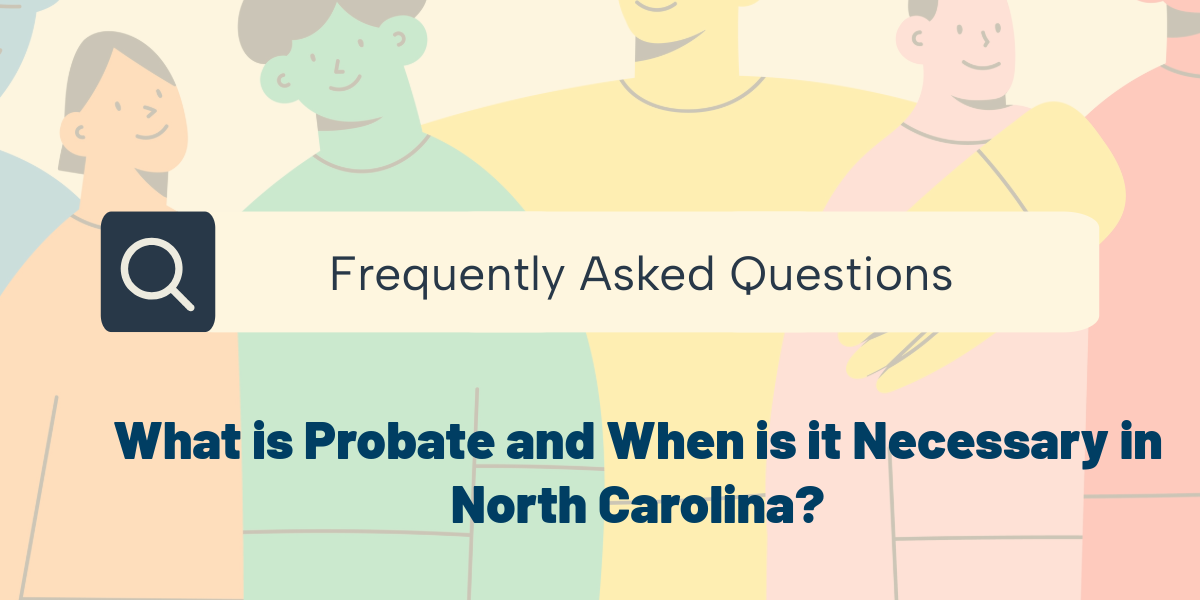What is Probate and When is it Necessary in North Carolina?
Detailed Answer
Probate is the legal process that settles a person’s estate after death. In North Carolina, probate serves three main purposes:
- Validate the will (if one exists).
- Identify and inventory the decedent’s assets.
- Pay debts, taxes and distribute remaining assets to heirs or beneficiaries.
When Probate Is Required
You must open probate in North Carolina when the decedent owned any of the following at death:
- Real property held solely in the decedent’s name.
- Personal property with a total value over $20,000.
- Assets that have no named beneficiary or payable-on-death designation.
North Carolina’s small estate procedure applies when a decedent leaves only personal property valued at $20,000 or less and no real estate. Under N.C. Gen. Stat. § 28A-18-2, family members or other heirs can use an affidavit to collect and distribute these assets without full probate.
Key Probate Steps
- File a petition with the clerk of superior court in the county where the decedent lived.
- Provide the original will. If no will exists, you request intestate administration.
- Appoint a personal representative to manage the estate.
- Give notice to creditors and publish a public notice in a local paper.
- Inventory assets and settle valid debts.
- Distribute the remaining property to beneficiaries or heirs.
Statutory References
We rely on definitions in N.C. Gen. Stat. § 28A-2-2 to interpret “personal property” and other terms throughout the probate code.
Key Points to Remember
- Not all assets pass through probate. Jointly owned property and assets with named beneficiaries usually avoid the process.
- Small estates under $20,000 in personal property may qualify for a simplified affidavit procedure under N.C. Gen. Stat. § 28A-18-2.
- Filing probate protects heirs by clearing title to real property and ensuring debts are paid properly.
- Missing deadlines can expose personal representatives to liability.
- Consulting an attorney early can speed up the process and reduce mistakes.
Get Professional Guidance
Probate in North Carolina involves strict rules and tight deadlines. At Pierce Law Group, our attorneys handle every step of the process with care and attention. If you need help opening probate, completing a small estate affidavit, or resolving creditor claims, contact our team today.
Email us at intake@piercelaw.com or call (919) 341-7055 to schedule a consultation.


